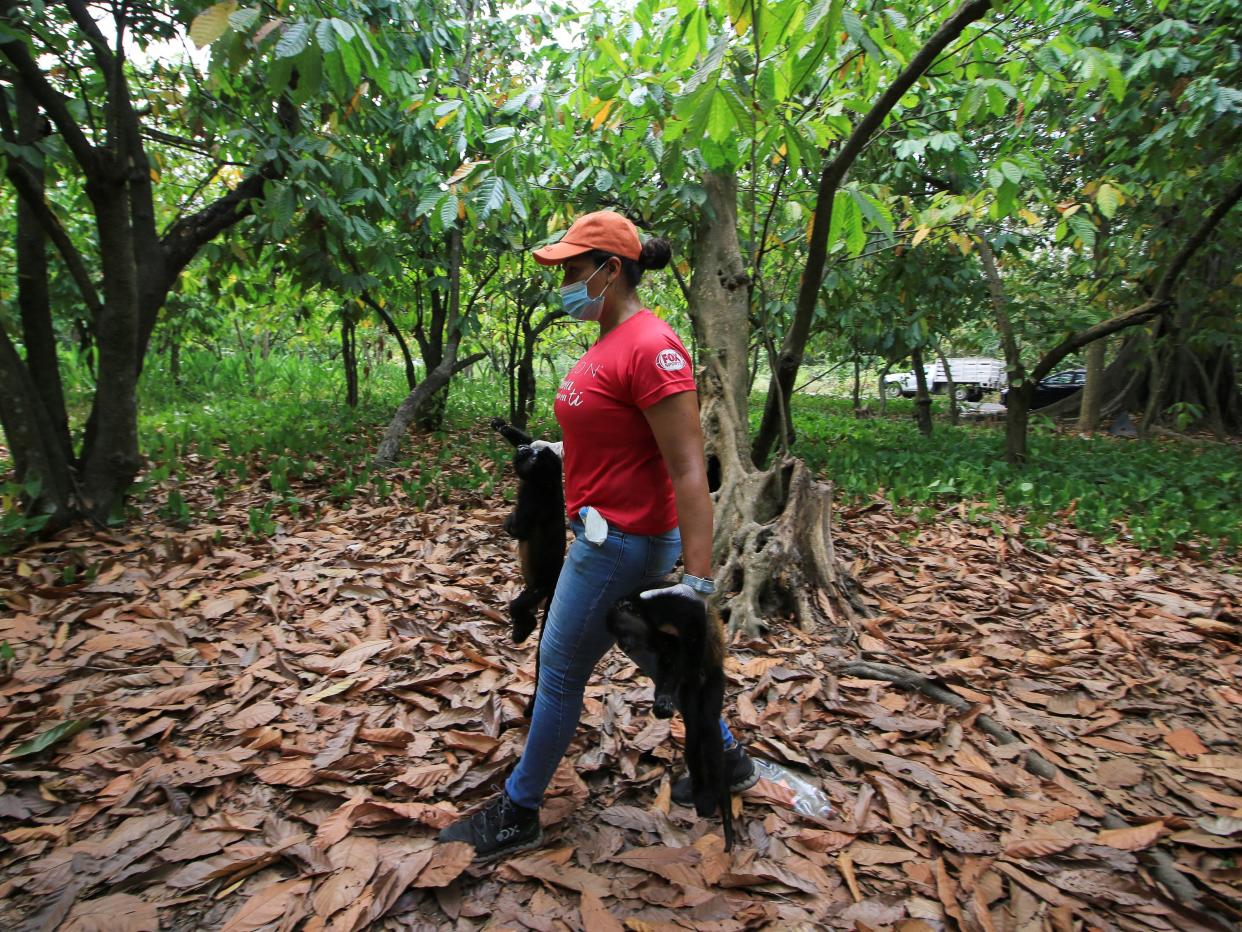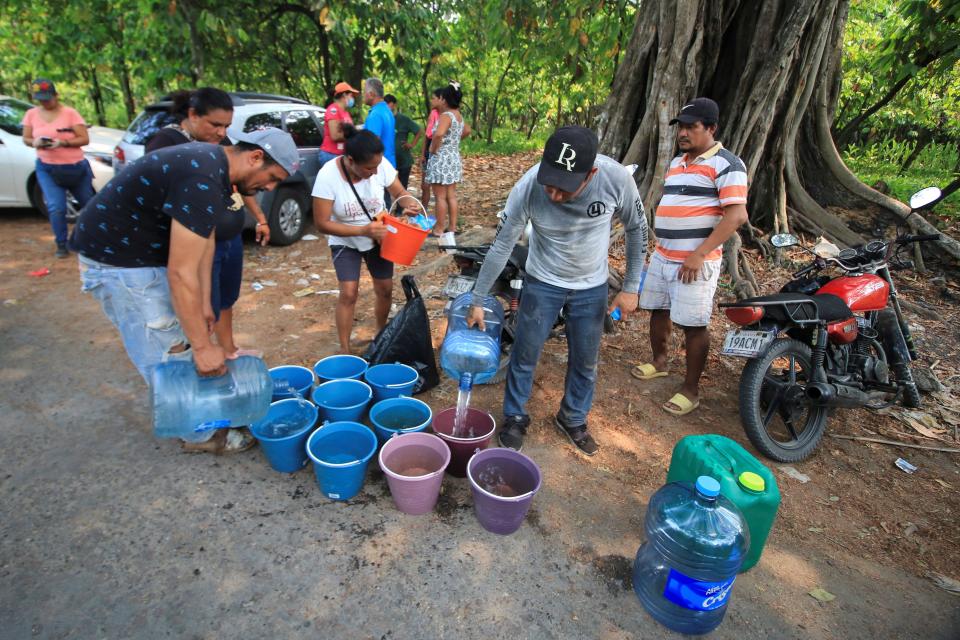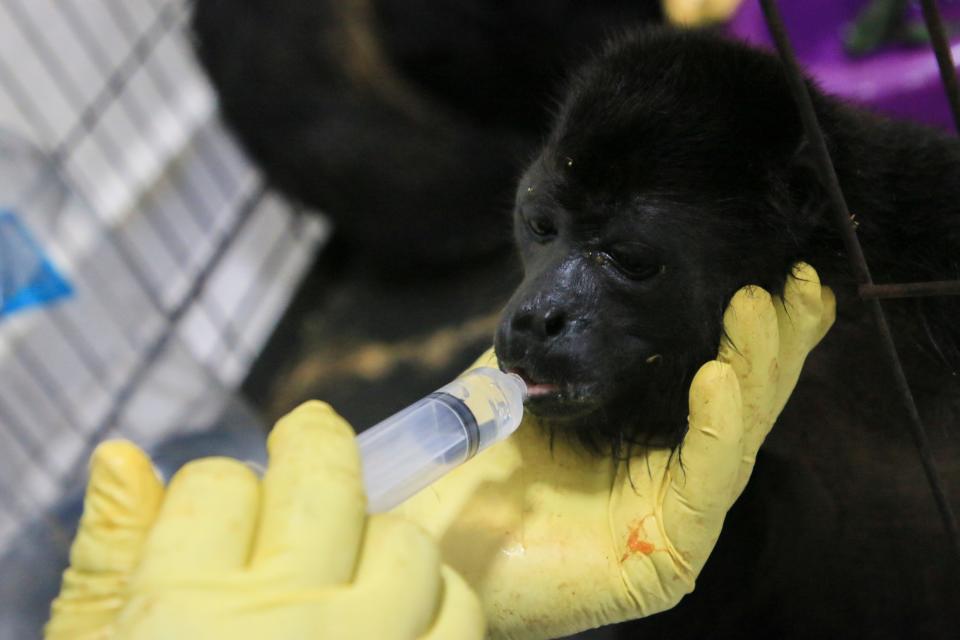A brutal heat wave in Mexico is causing monkeys to drop dead from trees

Soaring temperatures in Mexico are causing monkeys to fall dead from trees.
Dehydration killed the monkeys "within a matter of minutes," biologist Gilberto Pozo told the AP.
Research has shown that extreme heat, on average, cost the global economy $16 trillion between 1993 and 2013.
Temperatures are soaring in Mexico, and the scorching heat is causing monkeys to drop dead from trees.
Up to 85 howler monkeys were found dead in Tabasco in southeast Mexico, where temperatures this week are forecast to surpass 113 degrees Fahrenheit, Reuters reported, citing local media.
The mantled howler monkey, known for its call, is classified as endangered on the International Union for Conservation of Nature Red List, based on the organization's 2020 assessment.
Local authorities and volunteers have been collecting the bodies of the dead primates from forests. To help the remaining animals survive the heat wave, they have also put buckets of water and fruit around the monkey habitats.

The Associated Press reported that some concerned volunteers have also brought monkeys they rescued to local veterinarians.
"They asked for help, they asked if I could examine some of the animals they had in their truck," Dr. Sergio Valenzuela told the AP on Monday. "They said they didn't have any money, and asked if I could do it for free."
He treated five monkeys that were brought to him by volunteers. The animals arrived in critical condition, dehydrated and feverish.

"They were as limp as rags. It was heatstroke," Valenzuela said.
Tabasco's Civil Protection agency attributed the monkey deaths to dehydration in a statement to Reuters over the weekend. A source from the agency also confirmed to the outlet that monkeys have been found dead in three municipalities of the state.
Wildlife biologist Gilberto Pozo told the AP that the wave of monkey deaths started around May 5 and peaked over the weekend.
"They were falling out of the trees like apples," Pozo said. "They were in a state of severe dehydration, and they died within a matter of minutes."
In their weakened state, a fall from a height like that can result in serious injuries that end up killing the primates, he said.
On Monday, Mexico's environment ministry said in a statement that it was coordinating efforts to determine the cause of the monkey deaths. It also advised residents to notify the authorities immediately if they encounter dead animals.
According to the AP, Mexico's ongoing heat wave has been linked to the deaths of at least 26 people since March.
In early May, record-high temperatures were registered in 10 cities in Mexico — including the capital, per Reuters. On May 9, the temperature in Mexico City peaked at 93.7 degrees Fahrenheit.
Temperatures are soaring worldwide because of greenhouse gas emissions and El Niño, among other factors.
Extreme heat isn't just bad for health and the environment — it also greatly impacts the economy. Research has shown that extreme heat, on average, cost the global economy $16 trillion to $50 trillion between 1993 and 2013.
A representative for Mexico's environment ministry did not immediately respond to a request for comment sent outside regular business hours.
Read the original article on Business Insider

